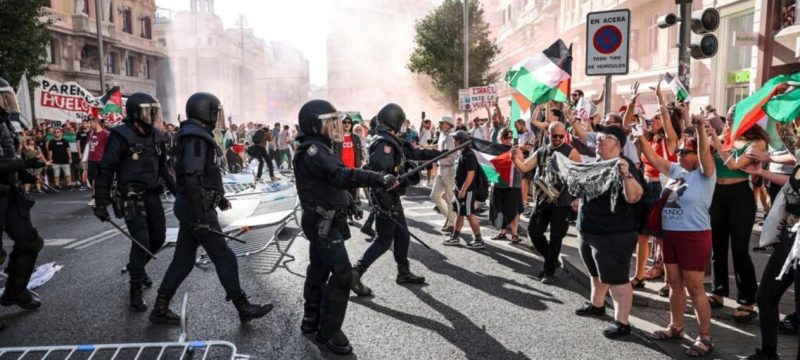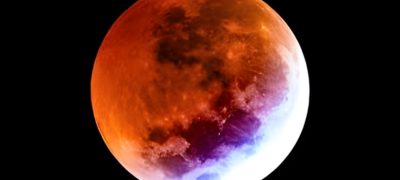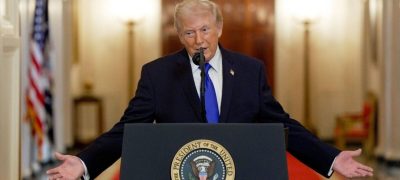Spanish Prime Minister Pedro Sanchez said on Sunday that he felt proud of pro-Palestinian protests held during the Vuelta a España cycling race. His remarks came as large demonstrations were expected during the final stage of the race in Madrid.
The prime minister praised the peaceful nature of the protests. He said they represented the voices of people who wanted justice and dignity for Palestinians. According to Sanchez, such expressions showed that Spain values democracy and free speech.
The Vuelta a España is one of the world’s top cycling competitions. It is followed closely across Spain and internationally. This year, however, the race drew attention not just for sport but also for political demonstrations.
Several stages of the race saw groups of protesters gathering along the route. Many carried Palestinian flags and banners demanding an end to violence in Gaza. Others called for stronger international pressure on Israel.
The demonstrations disrupted parts of the race. Organizers had to briefly pause some stages for safety. Despite this, officials reported no major incidents of violence. Most rallies remained peaceful, though loud and highly visible.
Sanchez said these scenes did not harm Spain’s image. Instead, he argued they showed solidarity with people suffering in conflict zones. He highlighted that the right to protest is a key part of democratic life.
The comments come as Spain takes a stronger stance on the Israeli-Palestinian conflict. Earlier this year, Sanchez’s government recognized Palestine as a state. That move drew praise from Palestinian leaders but criticism from Israel.
Spain has also supported calls within the European Union for a ceasefire in Gaza. Sanchez has often spoken about the need for balanced policies in the region. He insists that Israel has a right to security, but Palestinians also have the right to statehood and dignity.
The prime minister’s latest remarks link Spain’s domestic politics with global issues. By supporting the protests, he positioned himself as a leader willing to embrace public opinion on foreign policy matters.
Sanchez’s words were welcomed by many activists. Pro-Palestinian groups in Spain said the government’s support added weight to their cause. They argued that Spain should continue pressing Israel to end military actions in Gaza.
However, critics accused Sanchez of encouraging disruptions. Some conservative voices said the protests created a negative atmosphere around one of Spain’s biggest sporting events. They argued that sport should remain separate from politics.
Cycling fans were divided. Some expressed frustration over delays and interruptions. Others said they respected the right to protest even if it affected the race.
The final stage of the Vuelta a España took place in Madrid. Authorities prepared for large-scale protests near the route. Police increased security but assured that demonstrators would be allowed to express their views.
Crowds gathered with Palestinian flags and placards. Chants calling for peace in Gaza echoed along the streets. Many protesters said they wanted to use the global visibility of the race to highlight the suffering of civilians.
Despite concerns, the stage was completed without serious incident. Riders finished the race, and winners were celebrated. Yet the protests ensured that political messages shared the spotlight with sporting achievements.
The link between politics and sport is not new. Global sporting events often become platforms for protests and activism. In this case, the Vuelta a España highlighted both Spain’s domestic debate and its foreign policy approach.
Sanchez’s pride in the protests underlined his political strategy. He has sought to position Spain as a defender of human rights on the global stage. By aligning with pro-Palestinian voices, he also strengthened ties with parts of Spain’s electorate that value international solidarity.
At the same time, his remarks may deepen divisions. Critics will likely continue to accuse him of mixing politics with sport. But for supporters, his words confirmed his commitment to free expression and justice.
The 2024 Vuelta a España will be remembered not only for cycling but also for political activism. Pro-Palestinian protests marked the race, and the Spanish prime minister openly welcomed them.
Pedro Sanchez said the demonstrations filled him with pride and reflected Spain’s democratic spirit. His stance showed how global conflicts can shape national debates, even during major sporting events.
As the dust settles on this year’s race, Spain remains in the spotlight for its strong political voice on the Israeli-Palestinian conflict. The blend of sport and protest has once again shown how closely connected global issues and local events can be.
For more on global media rights and the full findings, read the latest news on :US-China Madrid talks on TikTok, trade rifts







